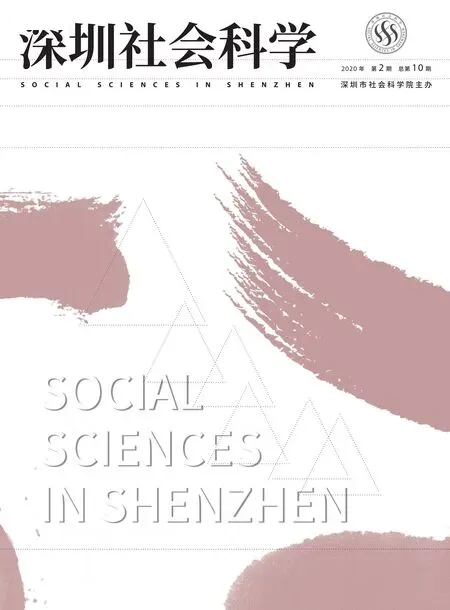Abstract
Wang Yangming's Later Thoughts on Influence-Response
Chen Lai
Wang Yangming later in life in Shaoxing lectured to his students, one of the main content was to explain the theory on influences-responses.It had two meanings.First of all, the theory of influencesresponses was used to prove the idea of the unity of all things.Yangming proved the oneness of the heart- object, thus proved the Unity of all things.Secondly, he used influences-responses theory to redefine what "thing" is.Yangming in his middle-age established the philosophical definition of "wherever the will is directed is the thing" in order to support his Ge Wu theory.This fundamental definition of things was changed in his later years; his definition of "things" was no longer defined as "wherever the will is directed is the thing", but rather as "in terms of stimuli and responses of this clear consciousness it is called things", declaring that "things" are the object that has the influences-responses relationship with the mind, indicating the change in positive things as physical aspects in the later years of Wang Yangming's learning.
Controversies on the“Chinese” Consciousness of Koxinga’s Image in East Asian Perspective
Chang Kunchiang
This paper analyzes the plural historical images of Koxinga in East Asia and deals deeply with the subjects surrounding the“Chinese consciousness” these images carry with themselves, reflecting the controversial phenomenon of the“Chinese consciousness,” intricate as well as dialectical.The image of Koxinga in the Japanese mind, this paper discovers, has at least two phases: first, from the Edo period to the middle reign of Meiji prior to colonial Taiwan, the image was symbolic of the manhood of Japanese Bushi with“Yamato-damashii” (Japanese spirit); second, with Taiwan under her rule, Japan deliberately endeavored to transform the image of the“Chinese mind” into that of“Yamato-damashii” by replacing the Koxinga Temple with the Kaishan Shrine.Nevertheless, this purpose of the colonial administration failed.Instead, it caused the outspread of the Chinese mind among Taiwanese.In conclusion, this paper points out how to seek a communicating bridge of East Asian commonness in the unpredictably ever-changing situation of East Asia.An instructive example, perhaps, lies in an East Asian historical character as Koxinga.
Female Philosophers in the Western History: Selected Cases Studies
Peng Guoxiang
With the development of feminism and the consciousness of women’s rights, many female philosophers have emerged since the 20th century and some of them have been noticed and studied by scholars in the Chinese-speaking world.By comparison, there were already lots of female philosophers in the Western history before the 20th century while few of them are well known to the Chinese readership.This article primarily focuses on four distinguished female philosophers, namely, Hypatia, Julian of Norwich, Margaret Lucas Cavendish, and Catharine Trotter Cockburn, respectively in ancient Greek, the medieval time, the Renaissance and Enlightenment period, and the early modern time.In addition to introducing these representative female philosophers in the history of Western philosophy, this article in the end suggests that female philosophers in Chinese history should also receive enough attention if we want to have a whole picture of the wisdom, which has been created by the brilliant minds in not only the west and but also the east.
In the Wave of "Applied-Buddhism"—A Comparison between Liang Qi-chao and Zhang Tai-yan on Thoughts of Buddhism-save-society
Fang Yingling
Compartive method is used in research treatises.First, this article compares the thought of Liang Qichao with that of Zhang Tai-yan on Buddhism-save-society.It attempts to reveal how the thinkers adopt Buddhism and serve their political aims differently in the wave of applied-Buddhism.Second, it compares the thoughts of Liang and Zhang with those of George Santayana and Max Weber in order to comprehend the thoughts of Liang and Zhang better, and same to the whole trend of Buddhism-save-society thought.The author points out that Liang and Zhang showed different attitudes towards the applied-Buddhism owing to their different political stands, academic accomplishments and personalities.For example, they adopted different Buddhism and treated the problem of religion and philosophy differently, godliness and godlessness.The author also analyses the thoughts of Liang and Zhang on moral-save-society and, the relations between the thoughts on their moral-save-society and Buddhism-save-society.The modern times of China was when the thinkers were searching after truth for saving the country.At that time, it was the epoch of enlightenment.These made the thought of Buddhism-save-society appearing in modern China have dual significance.We must distinguish between them.It will be necessarily to do further research on the "applied-Buddhism".
Proactive Regulation and Supervision on Conspiracies Based on Self-learning Algorithm
Wang Jian & Wu Zongze
Informationized and data-based transaction pattern now enables enterprises to make business decisions efficiently through various computer algorithms on the basis of technologies such as big data and cloudcomputing.However, some of the abnormal behaviors of self-learning algorithm, like pricediscrimination or gender-discrimination appearing during information recommendation and dynamic pricing process, that have emerged in recent years also lead to growing concerns about conspiracies based on selflearning algorithm.Due to the opacity and concealment of self-learning algorithms, it's often difficult to regulate them timely and effectively at the antitrust enforcement level or the judicial level.Therefore, it is quite necessary to build a proactive regulation and supervision path according to the characteristics of the self-learning algorithm, and then regulate self-learning algorithms from multiple aspects, such as technical supervision, data control, algorithm review, etc.Only through such realignments, adverse effect caused by conspiracies based on self-learning algorithm may be timely contained.

